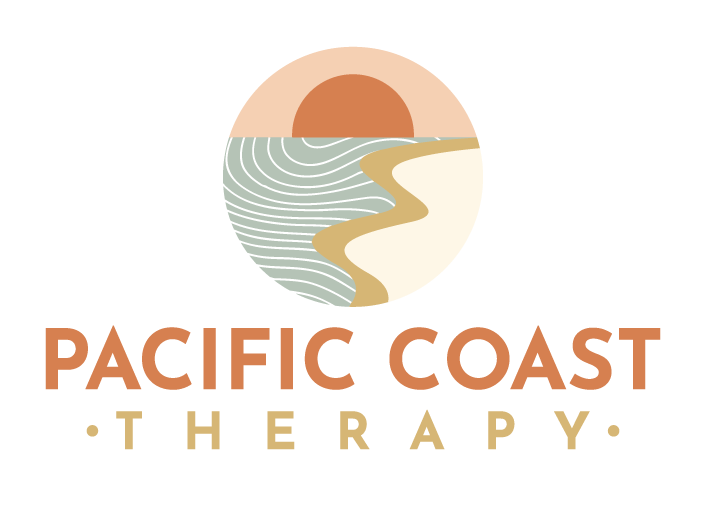Executive Function Therapy for Better Organization and Focus
If you or someone you care about struggles with planning, staying focused, or managing daily tasks, it may be more than just a case of forgetfulness. These challenges often point to executive functioning issues, and therapy can provide the right support to improve how daily life is managed.
At Pacific Coast, we offer executive function therapy that helps both kids and adults strengthen focus, memory, emotional control, and everyday task skills. Our team works with care and patience, supporting our clients’ growth at their own pace.


What is Executive Functioning?
Executive functioning is the set of mental skills that help people stay organized, manage time, focus, and remember important details. These skills play a big role in setting goals and getting things done, both at home and at work. When someone struggles with executive function, even simple tasks can feel confusing and frustrating. That’s why working on these skills through therapy can make everyday life feel a lot more manageable.
What Are the 7 Executive Functions
There are seven main skills that make up what we call executive functioning. These abilities work together to help people stay focused, organized, and in control of their actions. When someone struggles in any of these areas, simple tasks can start to feel overwhelming.
In therapy, we focus on strengthening each of these skills to make daily routines easier and less stressful. Here’s a closer look at what each function does and why it matters in everyday life.
- Self-Awareness (Metacognition)
This is the ability to think about your thinking. It helps you observe how you’re doing in real-time, whether you’re staying on task, making good decisions, or need to adjust your approach. People with strong self-awareness can catch themselves before making a mistake, while others may not realize something’s off until it’s too late.
- Inhibition (Self-Control)
Inhibition allows you to pause before acting or speaking. It helps you stop a habit or delay a response long enough to think things through.
This is essential for following rules, staying respectful, and making better long-term choices instead of giving in to immediate impulses. Weak inhibition can show up as blurting out answers, interrupting, or reacting without thinking.
- Non-Verbal Working Memory
This function lets you hold and mentally picture things in your head. For example, remembering what a room looks like, how to get somewhere, or how something should be done step by step.
It helps with spatial awareness, following routines, and organizing actions without needing constant visual reminders. These are often areas supported through executive function therapy, especially for those struggling to follow through without external cues.
- Verbal Working Memory
This is your inner voice that helps you keep information in mind through words. It allows you to repeat directions to yourself, remember what someone just said, or plan your next sentence. Without strong verbal working memory, people may quickly forget conversations, struggle with instructions, or lose track mid-task.
- Emotional Control
This skill helps you manage how you respond to feelings, both your own and others’. It’s not about ignoring emotions, but staying steady enough to handle situations calmly and make good choices even when upset or overwhelmed. Poor emotional control can lead to outbursts, shutdowns, or mood swings that get in the way of learning, working, or relationships.
- Planning and Prioritizing
Planning means figuring out what needs to be done and how to do it. Prioritizing helps you decide which tasks are most important or time-sensitive.
Together, these skills are essential for breaking big projects into steps, meeting deadlines, and staying on top of responsibilities. Executive function therapy often includes strategies to improve these areas and create more effective daily routines.
- Task Initiation and Completion
Starting a task is often the hardest part, especially if it’s boring, difficult, or unfamiliar. This function helps you get going without endless delays or distractions.
It also includes the ability to stick with a task and see it through to the end. When this skill is weak, procrastination, unfinished projects, and avoidance are common.
Common Challenges Linked to Poor Executive Functioning
When executive function is weak, it can affect how a person manages time, tasks, and emotions, often without them realizing the cause. These difficulties may not always be obvious at first, but can build up over time and create stress at home, school, or work.
For many, executive dysfunction therapy becomes a helpful step when these ongoing struggles start to interfere with daily routines or relationships. Executive function therapy can offer structured tools and support for building stronger habits and mental clarity.
Some common challenges include:
- Delays in starting tasks: Avoiding or putting off activities, even important ones, because the first step feels unclear or too big.
- Losing track of time: Trouble estimating how long things take, often leading to missed appointments, rushed work, or incomplete tasks.
- Difficulty switching focus: Getting stuck on one task or bouncing between many without finishing any of them.
- Lack of organization: Struggling to keep items, thoughts, or plans in order, resulting in clutter, forgotten responsibilities, or repeated mistakes.
- Emotional stress or quick frustration: Feeling easily overwhelmed, especially when routines change or expectations aren’t clear.
- Heavy reliance on external structure: Depending on alarms, schedules, or others to manage things that most people handle internally.
Recognizing these signs doesn’t mean someone is lazy or careless. It means they may benefit from support. At Pacific Coast, our executive functioning therapy is tailored to address these challenges and help individuals build lasting strategies for daily life.

What Is the Best Type of Therapy for Executive Functioning?
Cognitive Behavioral Therapy (CBT) is considered one of the most effective ways to strengthen executive functioning skills. It helps our patients recognize unhelpful thinking patterns and replace them with strategies that support better focus, organization, and task management. CBT is structured and practical, making it a good fit for both adults and children.
That said, therapy isn’t limited to just one approach. Depending on each patient’s needs, we may include other methods. Dialectical Behavior Therapy (DBT) helps improve emotional regulation, which often plays a role in executive function challenges. Internal Family Systems (IFS) can support patients who feel stuck due to inner conflicts. For some, a coaching-based approach works best, focusing on accountability and daily routines. We tailor every plan to fit the person, not just the diagnosis.
Executive Functioning and ADHD in Real-Life Situations
Many children with ADHD struggle with executive functioning, especially when routines are disrupted, like during holidays, travel, or family gatherings. These events often bring overstimulation, changes in schedule, and social pressure, all of which can make it harder for kids to manage their emotions, follow directions, or stay regulated.
Children with ADHD often struggle more with executive function during times of change, like family trips or holiday gatherings. Read more in our blog, Navigating Child ADHD During Holiday Travel and Festivities, for strategies to support them through those moments
Executive Functioning Support at Pacific Coast Therapy
Executive functioning issues can make everyday tasks feel harder than they should be. At Pacific Coast, we offer executive function disorder therapy that targets the core challenges, like planning, focus, and follow-through, through practical, goal-oriented support.
This kind of care falls under what we offer through executive function therapy, designed to build lasting daily life improvements. Each client receives care tailored to their specific needs, making it easier to build useful strategies and regain a sense of structure and control.
Here’s what sets our executive functioning therapy apart and why many individuals and families choose Pacific Coast for support:
Personalized Therapist Matching
We begin by thoughtfully pairing each client with a therapist who fits their personality, needs, and therapy goals. A strong client-therapist relationship makes a big difference in treatment success, and we prioritize making that connection from day one.
Evidence-Based, Individualized Care
Our therapists draw from proven approaches, including CBT, DBT, IFS, and other effective modalities, to help clients build practical skills and gain better control over their thoughts, behaviors, and routines. We stay current with the latest research so we can offer therapy that is both informed and personalized.
Inclusive and Accessible Support Across California
We believe therapy should be easy to access and welcoming to everyone. Whether you prefer to meet in person or want online therapy, we offer flexible options to fit your schedule and comfort.
Holistic, Long-Term Care Options
Executive function challenges often affect many areas of life, from work and school to relationships and emotional well-being. That’s why we offer more than just individual therapy. Clients can move into couples, family, or group sessions for broader, long-term support.
Additional Areas of Expertise Include:
- Depression, anxiety, and PTSD
- Disordered eating: Anorexia, Bulimia, Binge Eating, and more
- Autism and ADHD
- Couples therapy: EFT and the Gottman Method
- Trauma therapy: EMDR
- Other evidence-based practices: IFS, CBT, DBT, attachment-based therapy, play therapy
If trouble focusing or following through is affecting your everyday life, it’s not something you have to manage alone. At Pacific Coast Therapy, we understand how frustrating it can be when basic tasks start to feel like challenges. That’s why we take time to listen, learn your routines, and understand what’s getting in your way.
Our team will help you break things down into manageable steps, working at your pace with practical, real-world strategies that fit your lifestyle. Contact Pacific Coast Therapy today to schedule your free consultation and start building a support plan that offers you professional help tailored to your needs.

Get Started
The Pacific Coast Therapy team is passionate about helping people thrive. If you're ready to take the next step in your life, contact us today to schedule a free 15-minute phone consultation. One of our caring therapists can offer support. To start your therapy journey, please follow these simple steps:
1
Contact Us
Text, call, email, or fill out the form at the bottom of the page in order to contact us.
Meet With A Caring Therapist
Take part of a free 15-minute consultation with a therapist to see if it is the right fit.
3
Begin The Road To Healing
Start meeting on a regular basis and conquer your goals.
FAQs
How do you treat executive function disorder in adults?
How does executive function therapy help kids?
Executive function therapy helps children strengthen skills like focus, self-control, emotional regulation, and task management. Through age-appropriate strategies, kids learn how to stay organized and follow through with tasks.
Therapy also supports emotional awareness and problem-solving, which are essential for school and home life. Parents are often involved to reinforce these tools and ensure consistency outside of sessions.
How to improve executive function
How do I improve my executive functioning?

Get Started

